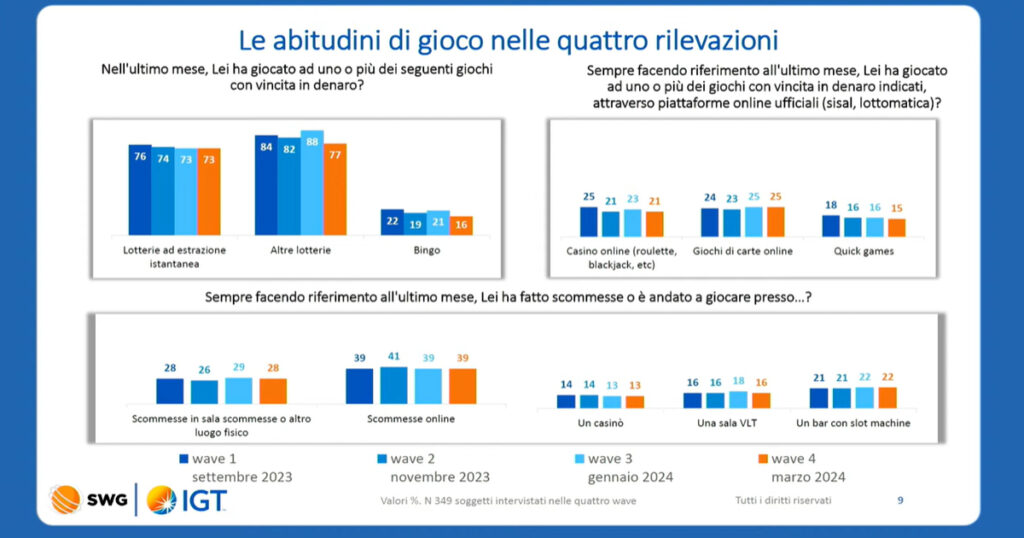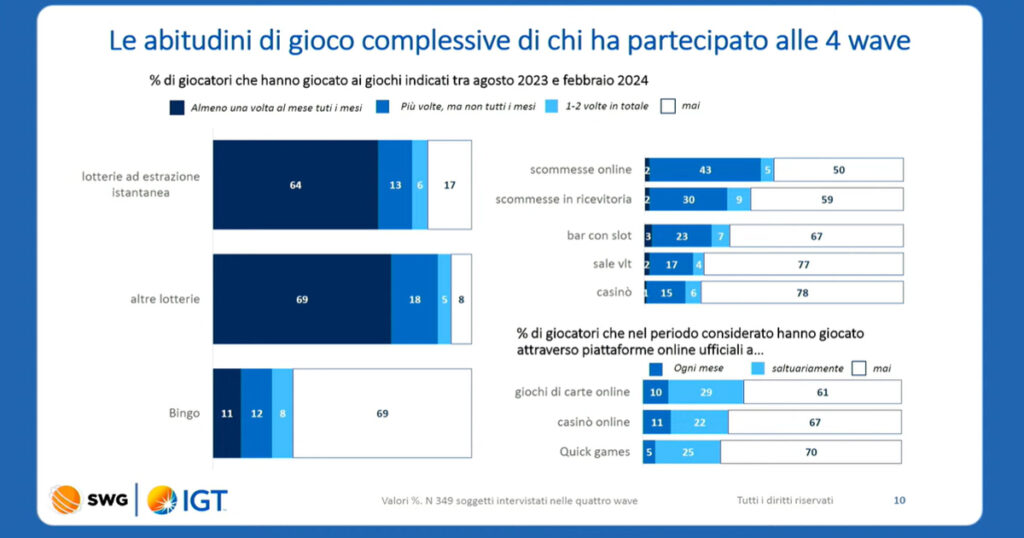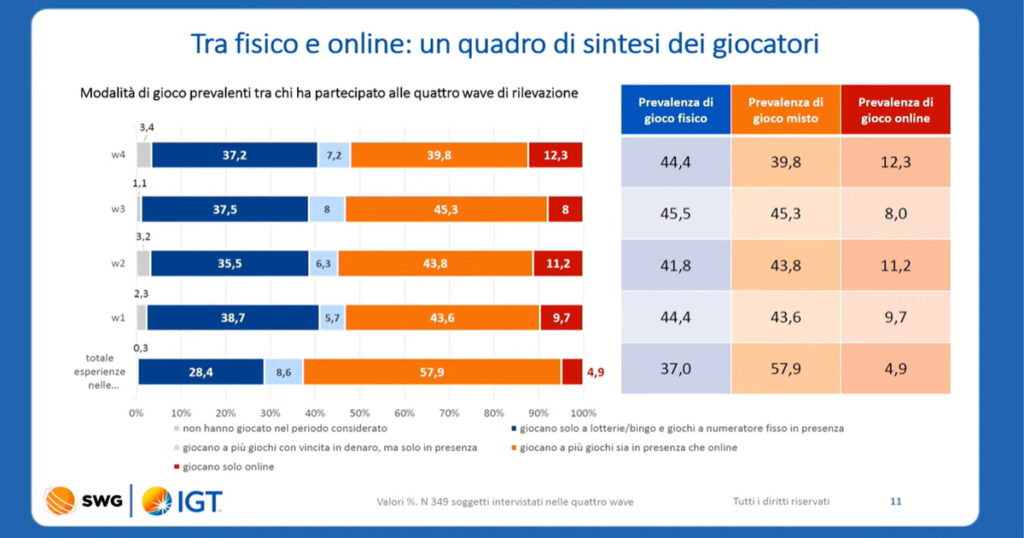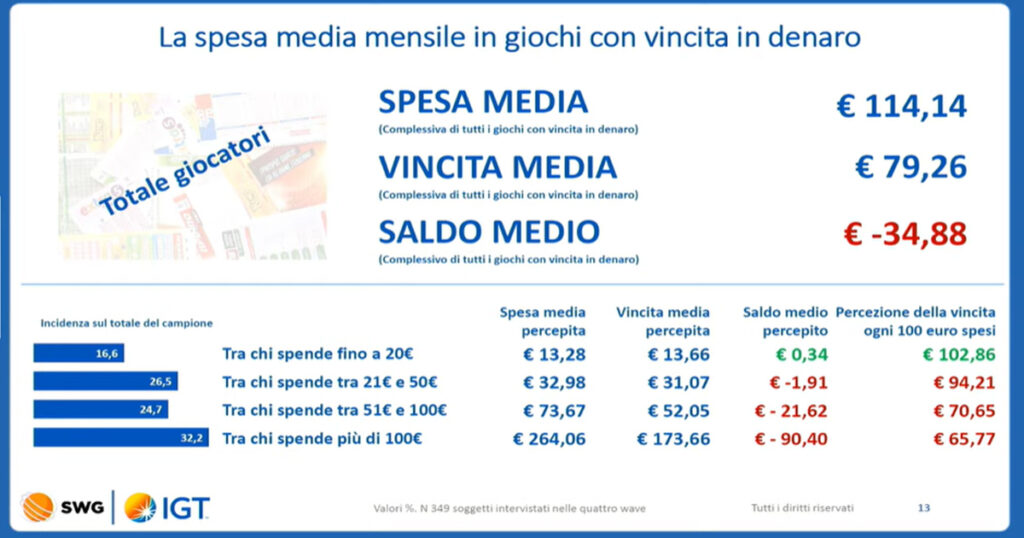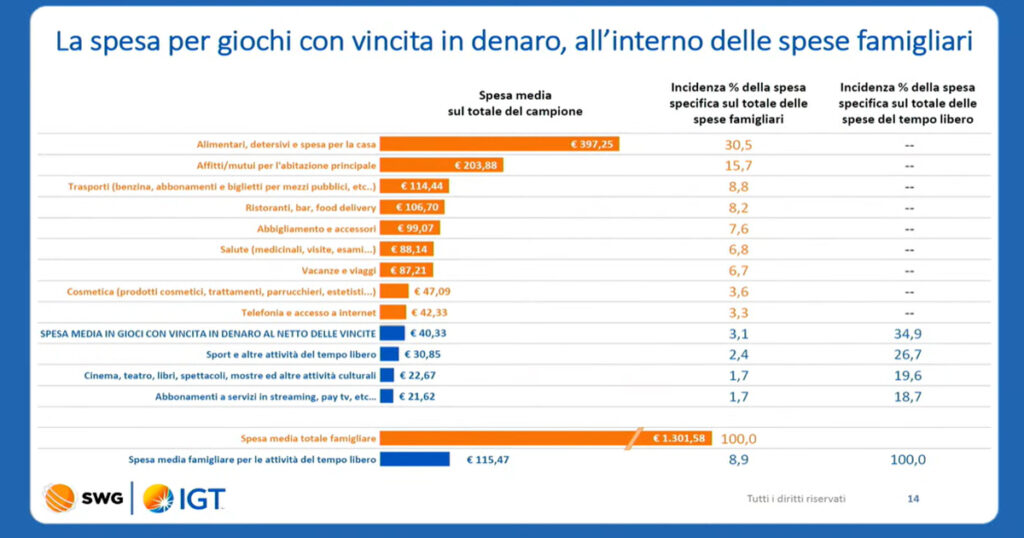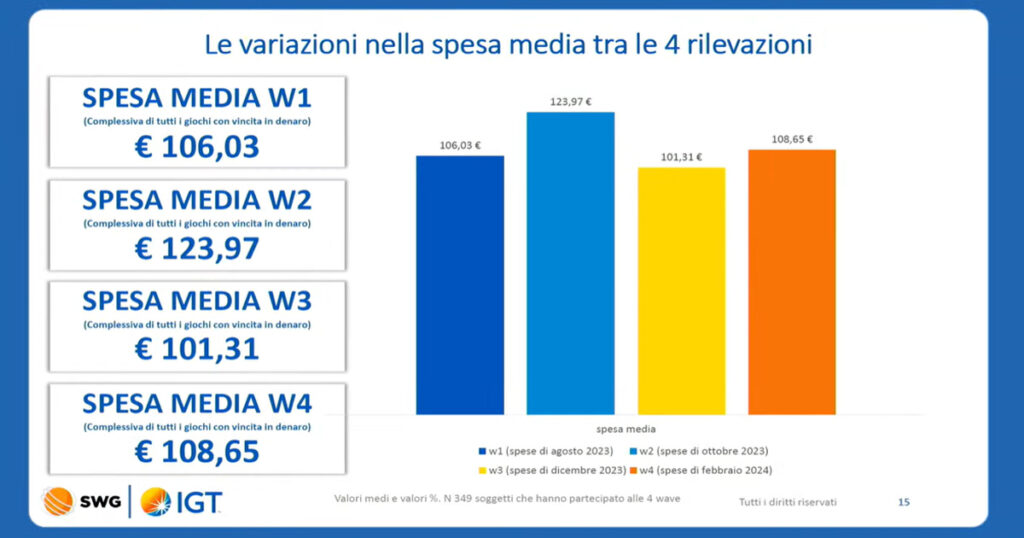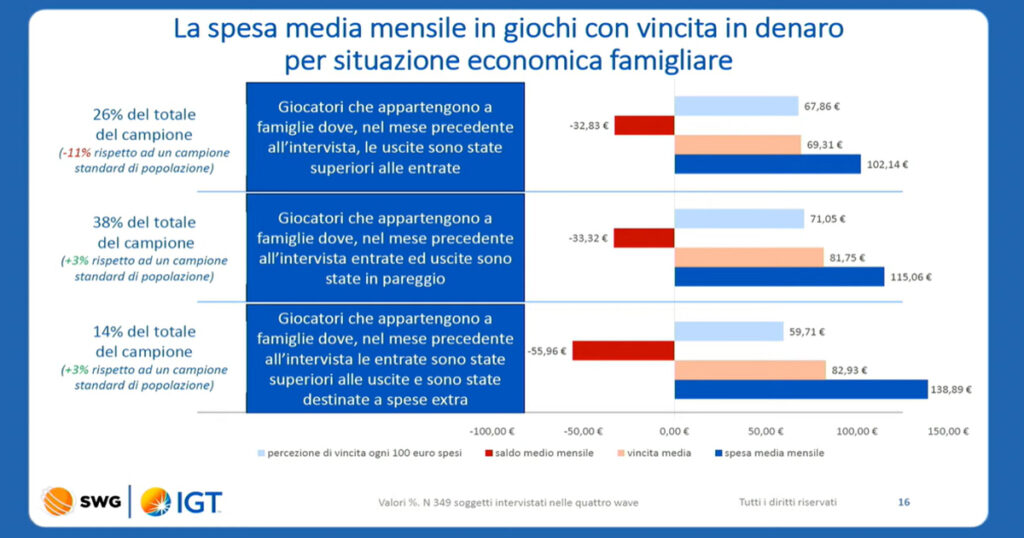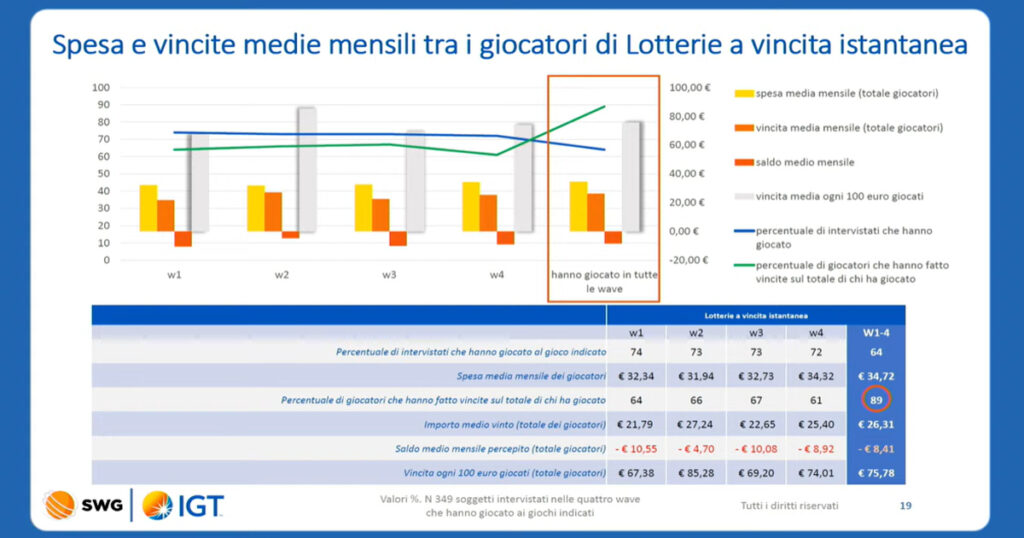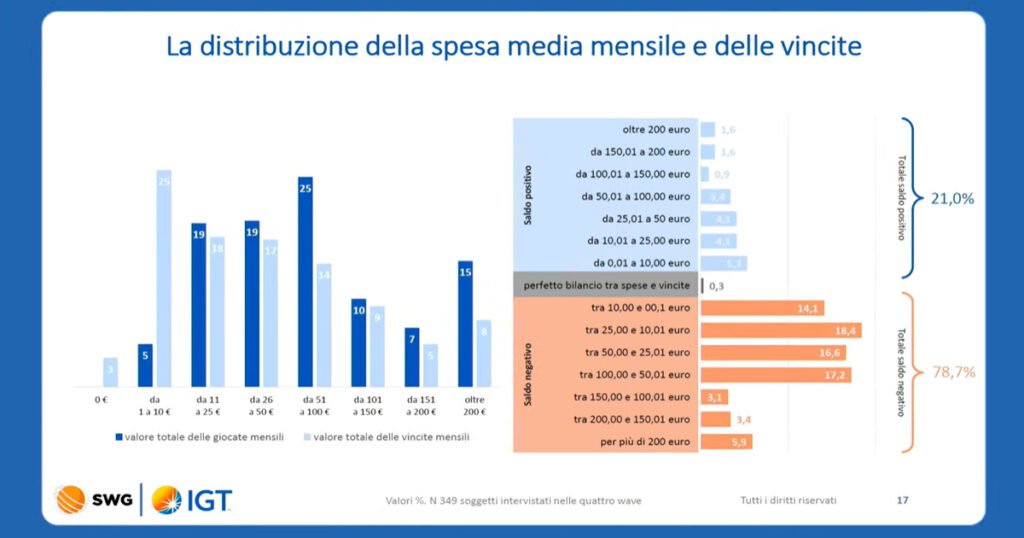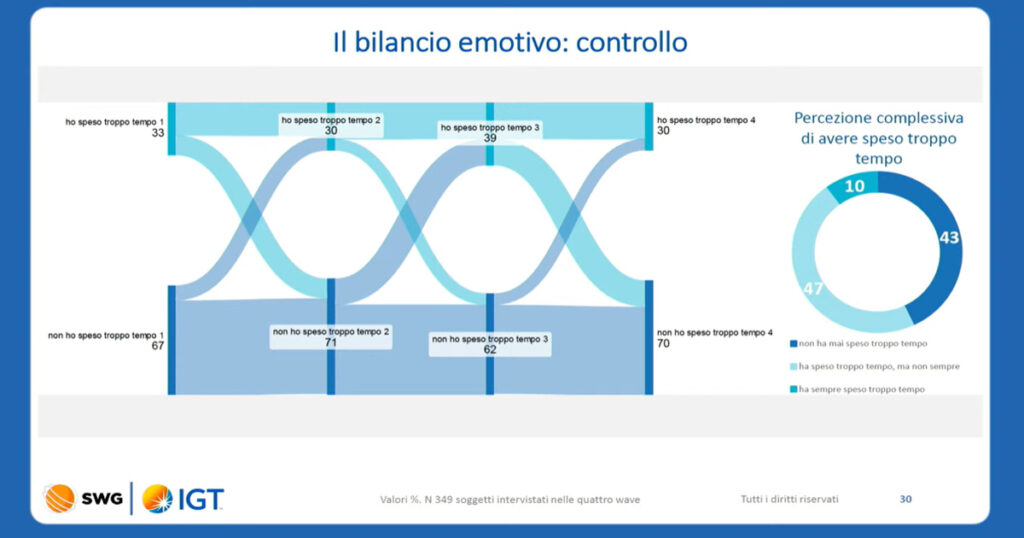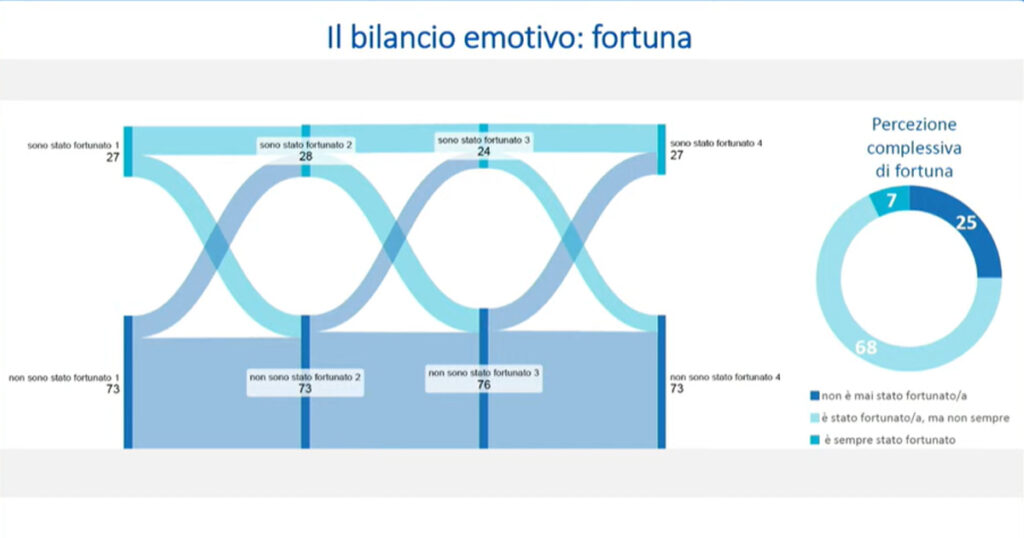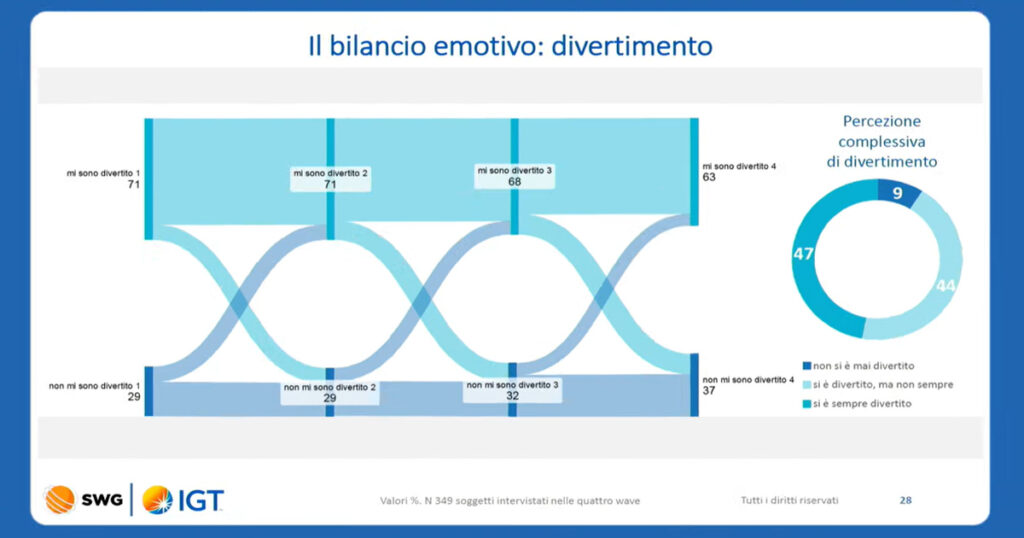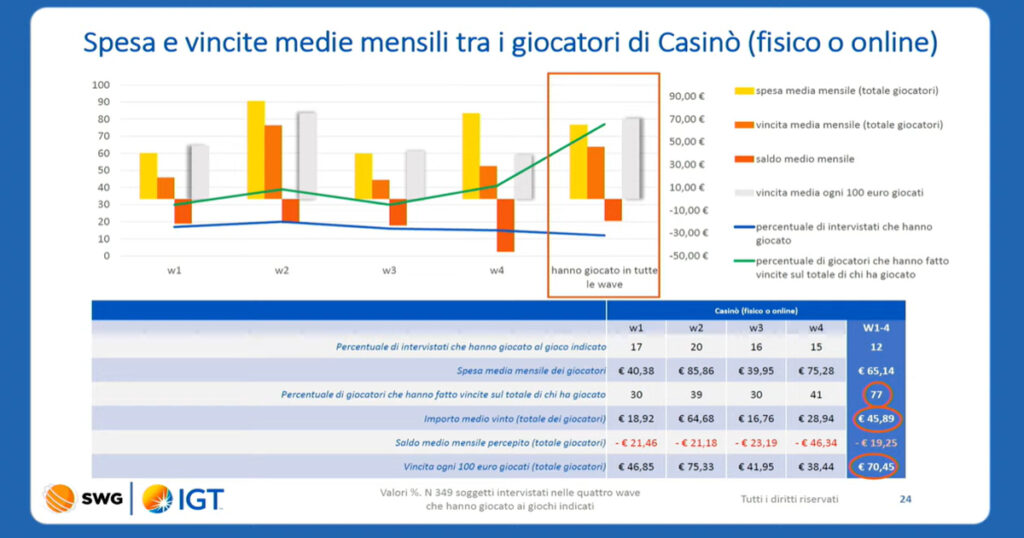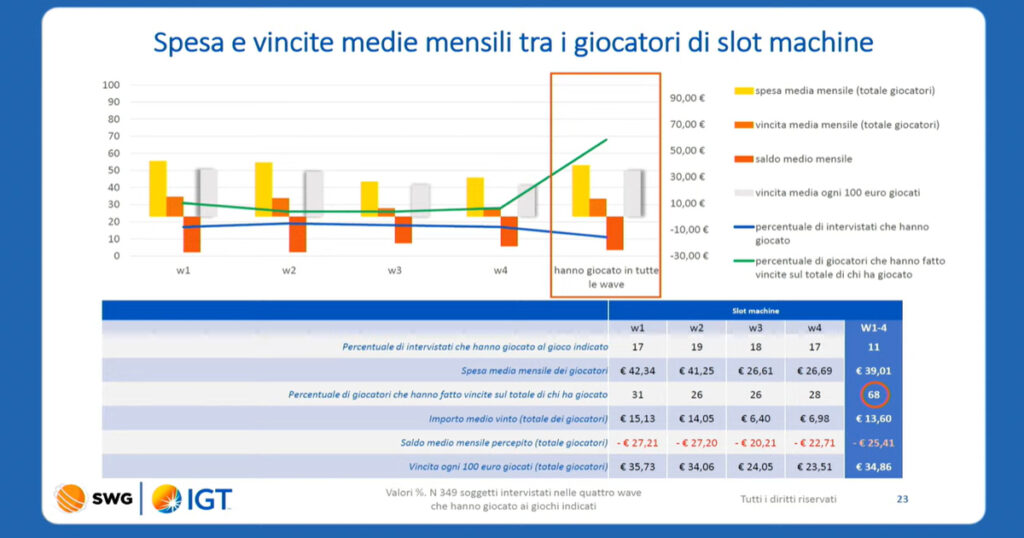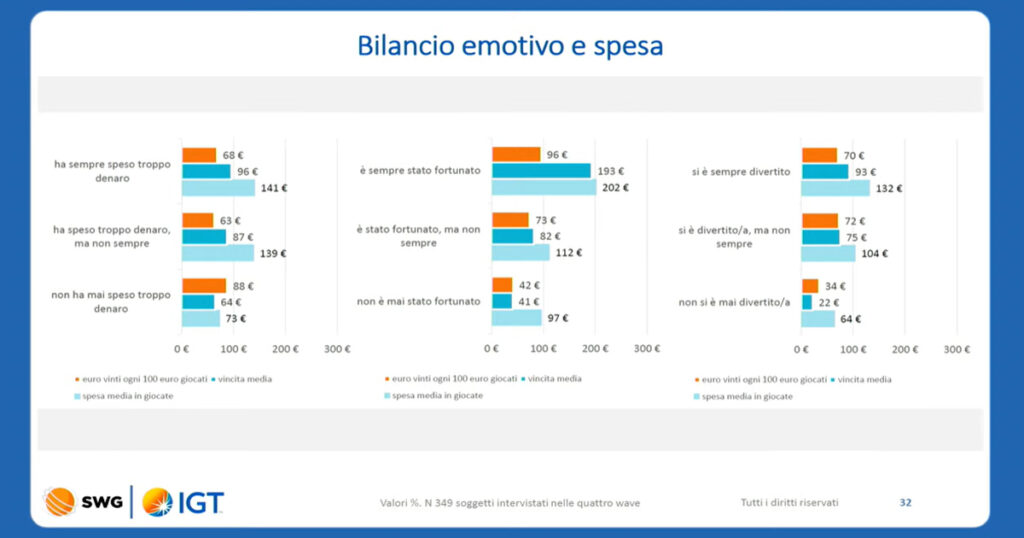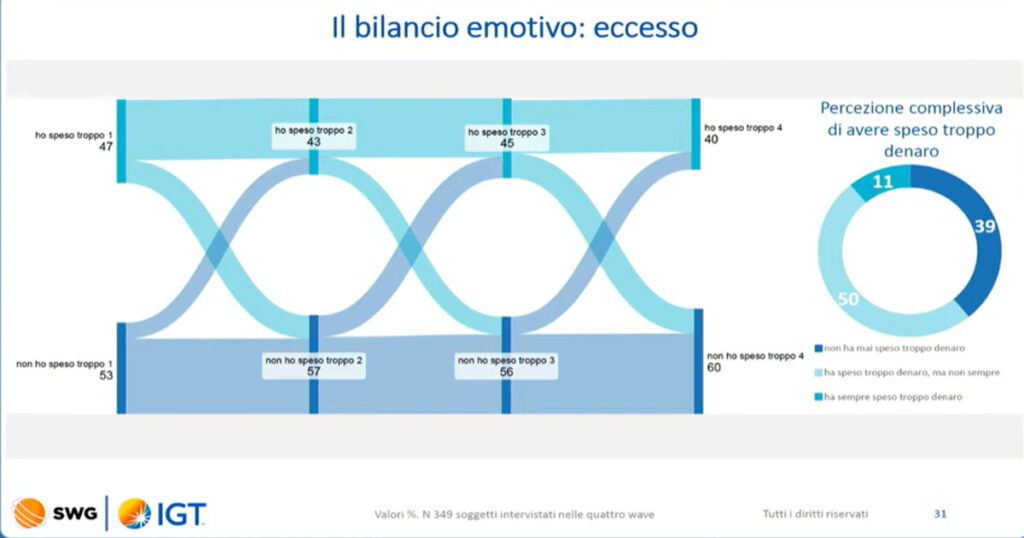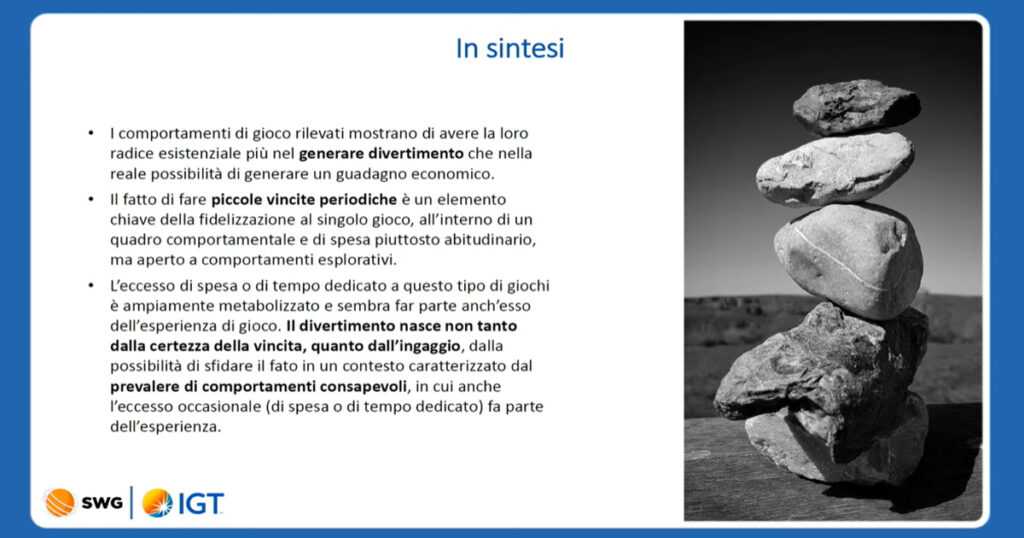“This is the fourth survey we have done, always interviewing the same people. We followed 6 players for 400 months to understand the dynamics of choice. Gambling is a consolidated habit, 64% of those interviewed played instant draw lotteries at least once a month, every month. There is a trend to experiment with online gaming. This does not automatically transform into a transition from physical to online, but there is a continuum of exploratory attitudes. At this moment a mixed playing attitude clearly prevails."
He said so Richard Grassi (in the photo), research director of SWG, speaking in Rome at the conference “Giocare da grandi. Public gaming and other forms of entertainment”, organized by Formiche in collaboration with SWG and IGT Lottery.
“The average monthly expenditure on games with cash winnings – explained the researcher – is 114,14 euros, while the average winnings are 79,26 euros, with an average monthly balance of -34,88 euros. Our data highlights that as gambling increases, awareness of the economic risk associated with it increases. Paradoxically, it is the small players who are least aware of the relationship between playing and winning. The average expenditure on gambling with cash represents approximately one third of the expenditure on leisure activities. Players who belong to families where expenditure is greater than income represent 26% of the total sample, -11% compared to a standard population sample. This tells us that it is more difficult to play if it belongs to families that are in a state of economic difficulty. The players who belong to families where the exits equal the incomes represent 38% of the total sample (+3% compared to a standard population sample). Players who belong to families where incomes are higher than expenses and have been allocated to extra expenses represent 14% of the total sample (+3%) compared to a standard population sample. The choice of games with cash prizes is not, except to a marginal extent, a choice linked to the desire to earn money. Generally, the fact of having won little, but having won, gives more continuity to the game. In summary, gaming behaviors are rooted in fun. Furthermore, the fact of making small periodic wins is a key element of loyalty to the individual game. Finally, the excess of spending or time dedicated to this type of game is largely metabolized and also seems to be part of the gaming experience. The fun arises not so much from the certainty of winning, but from the commitment, from the possibility of challenging fate in a context characterized by the prevalence of conscious behaviour, in which even the occasional excess (of expenditure or time dedicated) is part of the experience".
Below is the research data presented by Riccardo Grassi:
